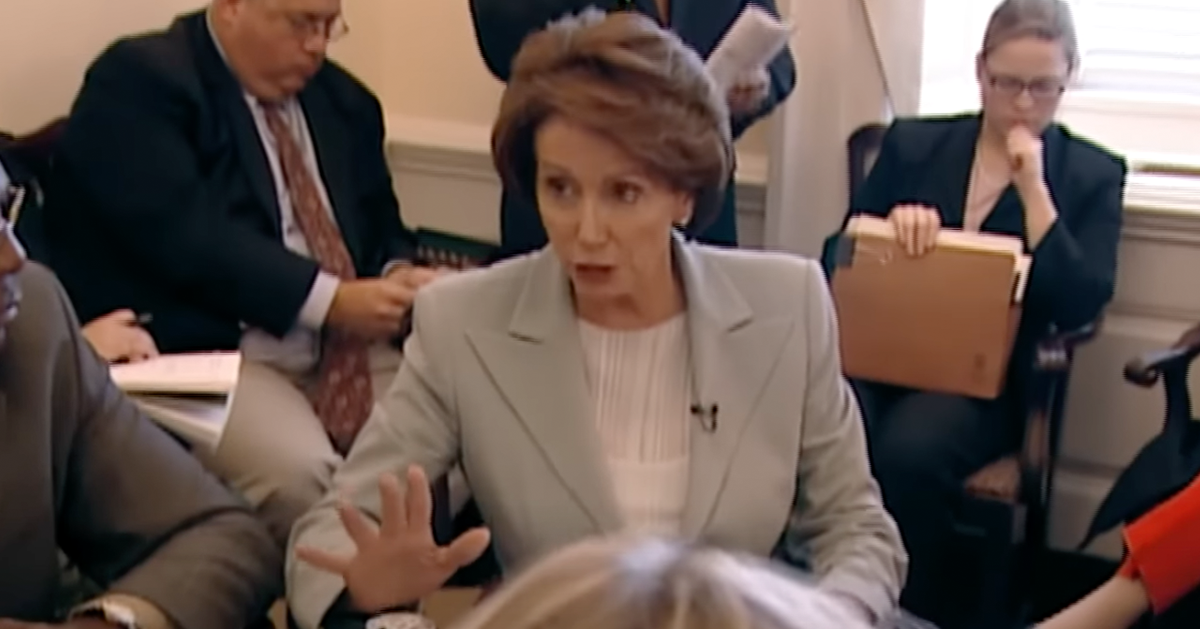Trump Reiterates Plans to End Birthright Citizenship
President-elect Donald Trump reinforced his commitment to ending birthright citizenship during a recent interview, a move that could set the stage for significant legal and political battles.
Trump suggested that while executive action might be a starting point, constitutional changes could be necessary to alter this longstanding policy, as Breitbart reports.
On Sunday, Trump appeared on NBC’s Meet the Press, where he confirmed that eliminating birthright citizenship remains a key priority for his upcoming administration. Speaking with host Kristen Welker, Trump reiterated his stance, which he had previously stated during his campaign.
Trump's Historical Promise on Citizenship
Welker brought up Trump's earlier promise to address this policy on his first day in office. Trump's response was firm, indicating a steadfast intent to pursue this goal actively. Contrary to Trump's swift approach to various issues during his presidency, this particular policy remained unfulfilled during his prior term, primarily due to the urgent need to focus on the COVID-19 pandemic at the time.
The host also highlighted the significant obstacle presented by the 14th Amendment, which provides citizenship to individuals born in the United States. This constitutional guarantee is a cornerstone of American citizenship laws.
Discussion of Executive Action
During the interview, Welker queried Trump about the feasibility of bypassing the 14th Amendment through executive means. Trump's admission acknowledged that altering such a fundamental aspect of the Constitution could prove challenging.
While expressing his intent to explore all available options, Trump suggested that more extensive measures might involve consulting the public and requiring legislative actions to initiate a constitutional amendment.
However, he did express willingness to employ executive powers to achieve this objective if possible. Trump had considered such action during his previous presidency but deferred it in light of the pandemic's urgent demands.
Claims About American Uniqueness Raised
Trump also expressed his views on the uniqueness of the United States' birthright citizenship policy, describing it as an outlier. He characterized this system as absurd, citing scenarios where individuals become citizens simply by being born on U.S. soil.
To underline his stance, Trump remarked on the ease with which someone could allegedly gain citizenship, which he believes undermines the integrity of the nation’s immigration system.
This view forms a critical part of Trump’s broader immigration agenda, which aims to restrict pathways to citizenship in favor of a more controlled immigration framework.
Constitutional and Legal Implications
The prospect of ending birthright citizenship poses significant constitutional questions. Any attempt to alter this right could lead to extensive legal challenges and legislative hurdles.
Critics argue that changing this policy might require not only a constitutional amendment but also a broad consensus from both legislative bodies and the American public.
Such amendments necessitate a two-thirds majority in both houses of Congress and ratification by three-fourths of the states, making it a daunting legislative endeavor.
Looking Ahead to New Administration
As Trump prepares to assume office, his remarks have rekindled a debate on the scope of presidential power regarding citizenship. The use of executive actions, while pivotal for certain policy shifts, faces limitations when dealing with constitutional rights.
Trump’s previous term saw a flurry of executive orders, but altering constitutional rights may require a more collaborative, nuanced approach involving both Congress and the judiciary.
The discourse surrounding this issue is likely to intensify as Trump takes steps to pursue the changes he has advocated for, setting the stage for potential legal confrontations.
Public and Political Reactions Await
The American public and political figures are expected to closely watch any developments on this front. Immigration remains a divisive, critical issue in U.S. politics, with birthright citizenship being a contentious point.
Stakeholders across the political spectrum may view Trump’s moves as either necessary for reform or as a challenge to constitutionally protected rights. The balance between executive ambition and constitutional limitations will be scrutinized.
As the administration unfolds, Trump’s decisions regarding birthright citizenship will likely be a focal point of public and political discourse, against the backdrop of a continuing debate over the nation’s immigration policies.





